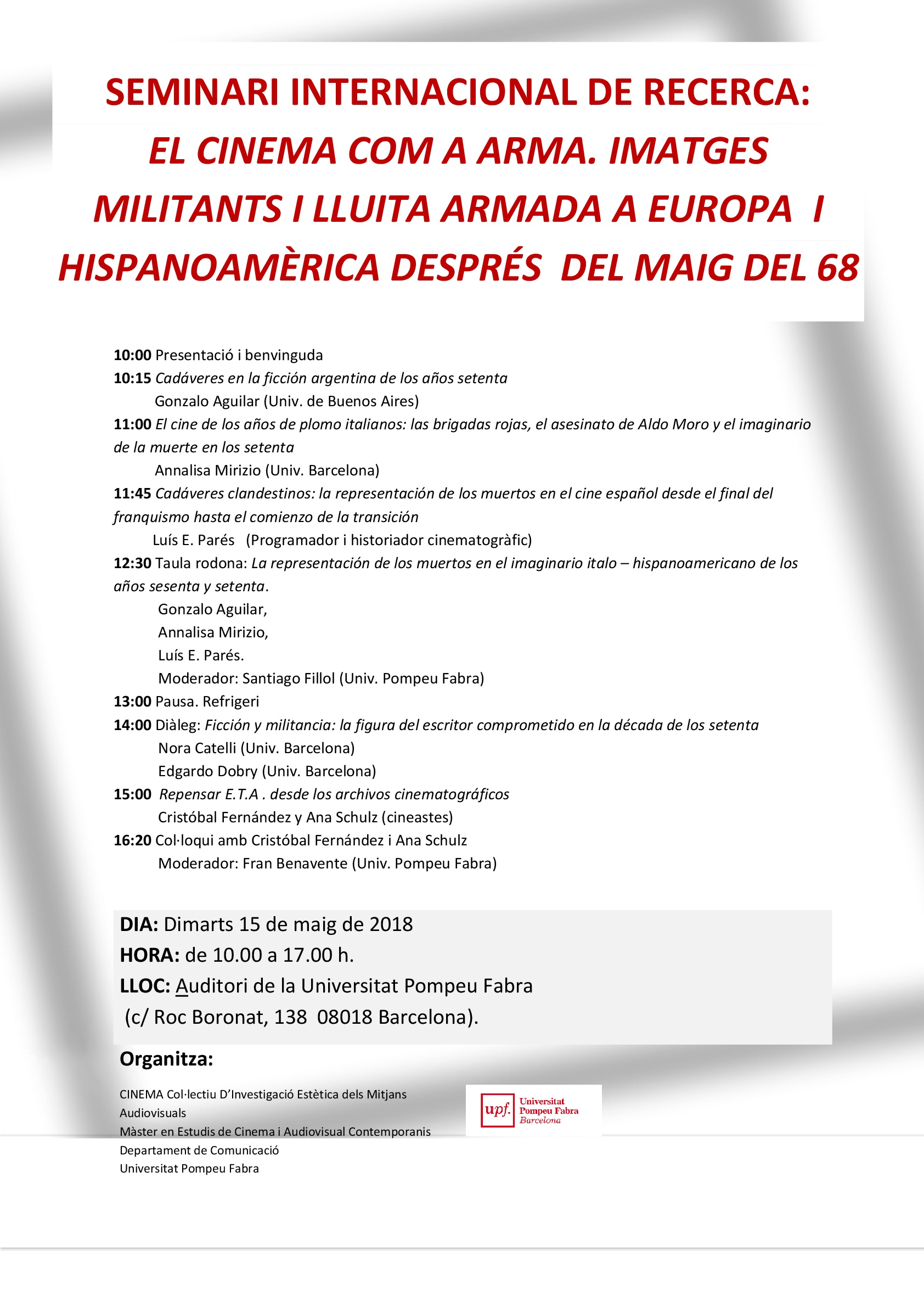Seminar on “Cinema as a weapon. Militant images and armed fight in Europe and Spanish America after May 68”
Seminar on “Cinema as a weapon. Militant images and armed fight in Europe and Spanish America after May 68”
Past May 15th the seminar “Cinema as a weapon. Images and armed fight in Europe and Spanish America after May 68” was held by the team CINEMA.
Talks went over the relation that cinema has kept with the political compromise and armed fight, a bond that shaped an intense exchange between Europe and Latin America in the political cinema from the 60’s and the 70’s. The meeting addressed issues like the type of reception that produced this militant cinema amongst the peoples that stood up for the revolution, and it was intended to direct the issue from a historical prism that would offer a contrast with current situations such as terrorism and its defence. The cinema transitioned from inserting its reflections within a gerrilla imagery, embracing the need to supply peoples with arms, to establishing a state of self-criticism and doubt, where the dialectic between image and action goes over new contradictions. However, the concern about political cinema remains firm throughout. It is capable of revealing the trace of history in order to load it with futurity and awareness beyond its institutional commemoration. Thus, the figure of the corpse appears in this situation as a privileged place where representation inscribes in the cinema the memory of all kinds of collective violence. Therefore, this analysis was an important part of the talks, as long as it refers to a figure which allows to ponder on the explicitness of a hurting past and the identification of a conflict, upon whose memory the critical utopia is built upon.
We relied on the presence of Gonzalo Aguilar (Professor from the Faculty of Philosophy and Letters of the University of Buenos Aires, and invited lecturer at Harvard and Stanford Universities), Annalisa Mirizio (Assistant lecturer at the Faculty of Philology of the University of Barcelona), Luís E. Parés (Producer, historian of cinema, and coordinator of Historias de nuestro cine at TVE), Nora Catelli (Graduate in Letters at the National University of Rosario, Argentina, and Doctor of Spanish Philology of the University of Barcelona), Edgardo Dobry (editor, essayist and Doctor of Philology of the University of Barcelona), Cristóbal Fernández and Ana Shulz (cinema producers).

